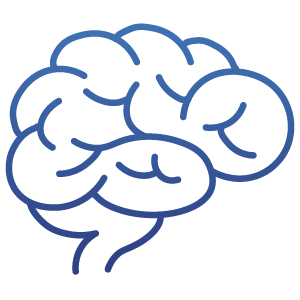Emotionally Disturbed Persons
Law enforcement are called to handle a myriad of mental health calls every day. This topic examines and explains the nature of people with social, mental, or behavioral problems and equips cops with the tools they need to safely handle these subjects, many of whom are close to suicide.

| Course Name | Course Description | Length |
|---|---|---|
| Autism for Law Enforcement: Definition and Prevalence |
Autism is a lifelong developmental disability that affects how a person communicates with and relates to other people. It also affects how they make sense of the world around them. As law enforcement officers, you may encounter people with ASD, and it’s important that you have a basic understanding of autism and its various types and presentations. In this course, learners will build a foundation of knowledge to assist them when faced with an individual that has autism and gain a generalized knowledge base to build upon so police officers become more comfortable when dealing with a person with autism. |
2h |
| Crisis Intervention Training (CIT) – Crisis Response – NEW! | This course will provide law enforcement officers with a basic understanding of crisis response strategies to minimize injuries for themselves, the person in crisis, and those around them. | 1h |
| Crisis Intervention Training (CIT) – Introduction to Mental Health Crisis – NEW! | This course will provide law enforcement officers with a basic understanding of mental health crisis and how to identify it while on service calls. | 1h |
| Emotional and Psychological Disorders 2 | The following training block includes lessons on: Dealing with Persons in the Autism Spectrum (Susan Hamre), Reality Training: Kentucky Mental Patient, Non-escalation vs De-escalation Verbal Tactics, Living with an Autistic Child, Responding to Mental Illness with Compassion, Mental Illness: The Challenges of Staying on Medication | 1h |
| Helping Better Serve People in the ASD | In this video, Susan Hamre recalls a conversation with a woman giving thanks to law enforcement for focusing more on how to better serve those with Autism Spectrum Disorder (ASD). Susan tells the woman’ss story and its significance in continuing to address ASD within law enforcement. | 10m |
| Missing Persons with Alzheimer’s Disease – NEW! | Alzheimer’s disease (AD) is the most common cause of dementia and results in progressive cognitive and behavioral impairment. The number of people with Alzheimer’s continues to increase due to an aging population. One in 10 people over the age of 65 and nearly half over the age of 85 have Alzheimer’s disease. This makes the chance that law enforcement will encounter an Alzheimer’s patient much more likely. Due to disease progression, wandering is a significant concern in the AD population. Proper training and knowledge will encourage successful interactions and outcomes. | 1h |
| Responding to Mental Illness with Compassion | In this video, Pat Doyle, discusses how officers can compassionately respond to subjects with mental illnesses. Officers frequently encounter people suffering from mental illness, so it is important for them to gain proper training in how to effectively and compassionately deal with this segment of the population. | 10m |
| Responding to People with Mental Illness – NEW! | As a police officer, you are aware that dealing with mentally ill individuals is increasing in prevalence. If there is a lack of funding in your area, there will likely be an increase in the number of people in your community who have little to no access to adequate mental health care. To fully understand how mental illness affects the individual and the community, we need to look at our current situation and historical factors. Recognizing the signs and symptoms of the most-seen mental illnesses will increase your knowledge base, provide you with an understanding of the challenges people with mental illness face, and allow you to actively address the needs of your community. Through this knowledge and understanding, you will gain the confidence to implement safer interactions for yourself and for individuals suffering from mental illness. | 1h |
| Subject Precipitated Homicide | This one-hour Subject Precipitated Homicide online course provides the necessary training in addressing your role as law enforcement and the need to understand what exactly suicide by cop is to develop strategies to effectively deal with it. | 1h |
| Suicide by Cop | This one-hour Suicide by Cop online course provides the necessary training in addressing your role as law enforcement and the need to understand what exactly suicide by cop is to develop strategies to effectively deal with it. | 1h |
| Understanding and Responding to Severely Agitated Individuals – NEW! | Understanding and Responding to Severely Agitated Individuals is designed for first responders, especially law enforcement officers, to handle situations involving severely agitated individuals effectively. The course explores the wide range of behavioral symptoms associated with severe agitation, such as extreme physical strength, insensitivity to pain, , and hyperthermia. It focuses on the importance of recognizing these signs and offers strategies for de-escalation and maintaining safety. This course is a resource for those seeking to improve their skills in managing crises involving severely agitated individuals, ultimately promoting public safety and the well-being of all parties involved. | 1h |
